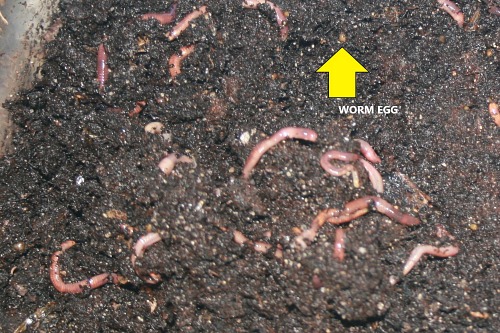Lake Hickory Bait: A Preferred Provider for Quality Bait and Tackle
Lake Hickory Bait: A Preferred Provider for Quality Bait and Tackle
Blog Article
Red Wigglers: The Unsung Heroes of Organic Waste Recycling
Red wigglers, or Eisenia fetida, serve as important representatives in the natural waste recycling process, transforming disposed of materials right into important vermicompost. As the globe significantly looks for remedies to battle waste buildup and improve agricultural productivity, comprehending the role of these worms comes to be essential.
What Are Red Wigglers?
The impressive resilience of red wigglers, scientifically known as Eisenia fetida, underscores their important duty in natural waste recycling. These small, reddish-brown earthworms are typically found in disintegrating raw material, such as compost heap and manure loads. Lake Hickory Bait. Unlike other earthworm types, red wigglers prosper in nutrient-rich atmospheres and are very efficient at breaking down natural materials, making them essential for vermicomposting

(Red Wiggler Express)Along with their role in waste reduction, red wigglers contribute to soil health and wellness by improving soil structure and oygenation with their delving activities (Lake Hickory Bait). Their presence in composting systems not only improves disintegration rates however likewise promotes a lasting approach to squander administration, showing their relevance in ecological conservation efforts
Advantages of Composting With Worms
Composting with worms, especially red wigglers, supplies numerous benefits that improve both waste management and dirt health. These worms successfully break down organic waste, converting it into nutrient-rich vermicompost that enriches soil. This process increases decay, permitting a faster recycling of cooking area scraps and other organic products contrasted to conventional composting methods.
Additionally, the vermicompost created by red wigglers is brimming with advantageous microorganisms, which assist improve dirt framework, oygenation, and dampness retention. This enhances the total health and wellness of plants, advertising strenuous growth and enhanced returns in gardens and agricultural setups. The usage of worms in composting lessens the manufacturing of greenhouse gases, such as methane, contributing to a more lasting waste management system.

Just How to Start Vermicomposting
Establishing a vermicomposting system is a straightforward process that can generate considerable benefits for both waste monitoring and dirt enrichment. To begin, choose an ideal container, such as a plastic container or wood box, with appropriate ventilation holes to make certain proper air movement. The dimensions need to ideally be around 2 feet by 3 feet, allowing adequate area for the worms to flourish.
Following, prepare bed linens material, which can include shredded newspaper, cardboard, or coconut coir. This bed linens ought to be moistened to produce a suitable environment for the worms. As soon as the bedding is in place, introduce red wigglers (Eisenia fetida) into the bin, usually around one pound of worms for every single square foot of surface location.
Adhering to the placement of worms, include natural waste, such as vegetables and fruit scraps, coffee grounds, and smashed eggshells. Avoid adding dairy, meat, or oils, as these can develop odors and draw in insects. Position the container in a shaded, temperature-controlled location to keep ideal conditions for worm activity. With these steps, you will effectively start a vermicomposting system that adds to lasting waste administration and improves your soil.
Maintaining a Healthy And Balanced Worm Bin
(Red Wiggler Express)Keeping a worm bin thriving needs regular attention and like make sure the health and wellness of the red wigglers and the efficiency of the composting procedure. Correct upkeep starts with keeping an eye on the dampness degrees; the container should be damp yet not soaked. An excellent general rule is to keep a consistency similar to a wrung-out sponge.
Oygenation is important. Gently mixing the bed linen and food scraps every couple of weeks stops compaction and ensures that all worms have accessibility to oxygen. In addition, it is necessary to feed the worms suitably. A balanced diet of fruit and vegetable scraps, coffee premises, and smashed eggshells need to be offered in moderation to stay clear of overfeeding, which can result in odors and pests.
Temperature level guideline is an additional important aspect. Red wigglers thrive in a variety of 55 to 77 degrees Fahrenheit. If the bin becomes also warm or cool, the worms may become stressed - Lake Hickory Bait. Periodically inspect for signs of health, such as worm population growth and the presence of healthy and balanced castings. By faithfully taking care of these aspects, one can maintain a robust and productive worm container.
Effect On Lasting Living
The effective upkeep of a worm bin not only benefits the health and wellness of red wigglers yet additionally adds substantially to lasting living practices. By reusing natural waste, such as kitchen area scraps and backyard particles, red wigglers help divert considerable amounts of product from garbage dumps. This decrease in waste not just lowers greenhouse gas exhausts however also minimizes the environmental problem related to waste monitoring.
Additionally, the spreadings generated by red wigglers work as a nutrient-rich natural fertilizer, boosting soil health and wellness and advertising plant development. This natural alternative to chemical fertilizers sustains sustainable farming and horticulture practices, reducing dependence on artificial inputs that can hurt communities. Additionally, worm composting fosters understanding of waste management, motivating individuals and neighborhoods to embrace even more lasting behaviors.

Final Thought
In summary, red wigglers function as important contributors to organic waste recycling via their effective disintegration of organic materials. Their ability to produce nutrient-rich vermicompost boosts dirt wellness and sustains lasting agricultural techniques. By incorporating vermicomposting into waste monitoring techniques, people and neighborhoods can considerably reduce waste while promoting environmental sustainability. The function of Eisenia fetida in fostering healthy ecological communities highlights the significance of these organisms in accomplishing sustainable living and boosting soil fertility.
Report this page